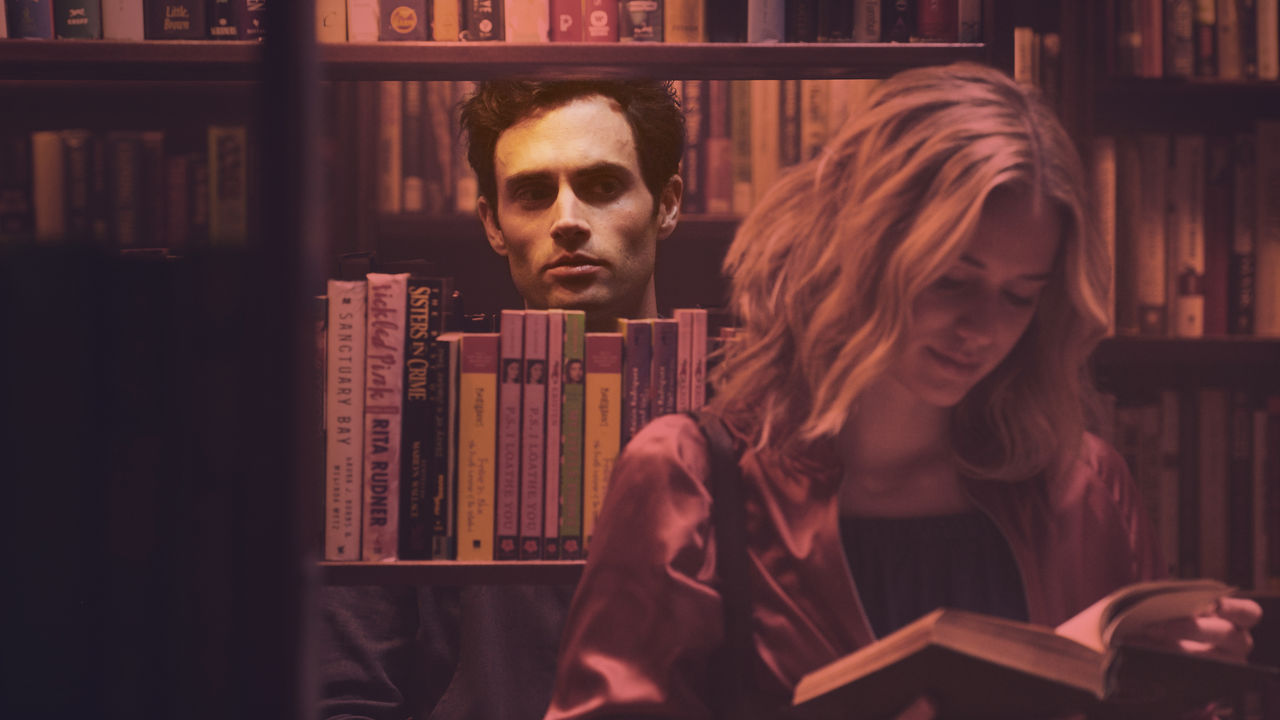The Netflix Thriller Currently Sweeping Social Media
Words, Delanique Millwood
Photography, Courtesy of Netflix Official Site
You, Netflix’s latest programming, is a psychological thriller with a storyline equally relatable and jaw-dropping. It tells the story from the perspective of Joe - starred as Penn Badgley - a stalker-villain, who committed ambiguous crimes in the name of love. Joe is the manager of a book store where he meets Beck, an aspiring writer, and immediately falls in love with her which then followed a series of stalker-approved obsessive behavior. The narrative of the storytelling places us in Joe’s shoes where we inevitably see the good in the crimes he commits, so much that we are rooting for him in moments he’s close to being caught.
The ten-part thriller, based on Caroline Kepnes’s book of the same name, romanticises the psychopathic behavior of Joe who remembered Beck’s name from her credit card, thoroughly investigated her life by way of her non-private social media accounts and gathered the most intimate of details of her life, linked her home address from a location-tagged photo she posted on Instagram, watched her from her bedroom windows, and somehow ended up on her bed while she wasn’t home - she then walked in as he hid in her shower for what marked the beginning of and the creepiest scene of the creep-fest. No matter the extent of Joe’s obsessive behavior that was sparked by a singular brief conversation he had with Beck, he - even us - believe he’s a good guy as he poses himself as ‘the one’ by ‘saving’ Beck from her possessive best friend and her (admittedly) troubling ex.
But why is Joe the stalker so relatable? in the age of social media and online dating, the internet birthed a breadth of stalkers of some kind. We are guilty of poring ourselves into the lives of people through their social media accounts, long before we meet them in person. Sometimes building a mirage of possibilities in our minds —obsessing over what they do, places they frequent, and the fantasy of one day being a part of their personal lives. The conflict I felt within myself from unconsciously relating to Joe - to some degree, made me pose the question, “Am I the only person who feels this way?” After a friendly debate with my close male friend, what he argued really stuck with me.
“We live in an era of information, where we can learn about anything or anyone in a matter of seconds. As the world becomes smaller and our mating options are no longer limited to our everyday environment, we owe it to ourselves to accurately evaluate all of our options.” he told me. He continued, “I absolutely go over people’s profiles to get a better sense of the person and foreshadow the future of the relationship but it goes beyond romanticism. The real question is, What would be better? A person who does good with evil intentions? Or a person who does evil with good intentions? There is a thin and blurry line between good and evil. In my opinion he truly had the best intentions for her.”
Essentially, what it concludes to is the mere questioning of our morality and the blurred lines of trust. As Beck asserted, “if we don’t have trust we have nothing,” though her actions were also questionably untrustworthy. Maybe we are all questionably untrustworthy.


